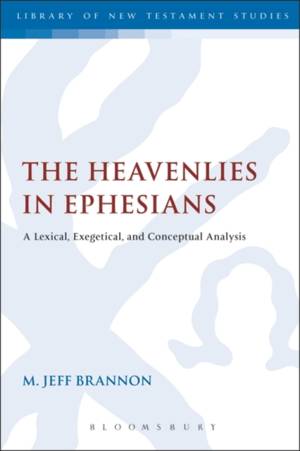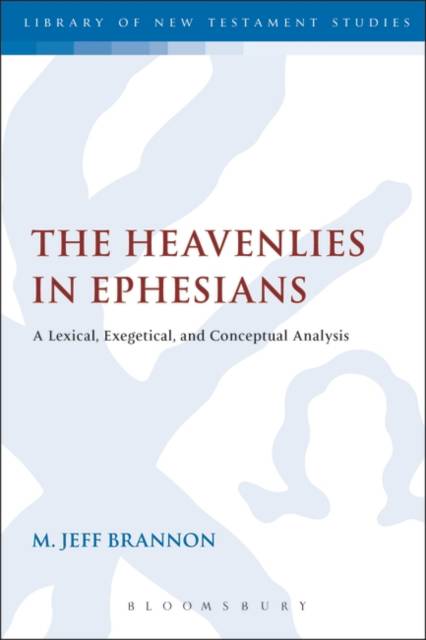
Je cadeautjes zeker op tijd in huis hebben voor de feestdagen? Kom langs in onze winkels en vind het perfecte geschenk!
- Afhalen na 1 uur in een winkel met voorraad
- Gratis thuislevering in België vanaf € 30
- Ruim aanbod met 7 miljoen producten
Je cadeautjes zeker op tijd in huis hebben voor de feestdagen? Kom langs in onze winkels en vind het perfecte geschenk!
- Afhalen na 1 uur in een winkel met voorraad
- Gratis thuislevering in België vanaf € 30
- Ruim aanbod met 7 miljoen producten
Zoeken
€ 88,45
+ 176 punten
Uitvoering
Omschrijving
"The expression "in the heavenlies" appears five times in Ephesians and is not found at any other point in the New Testament. The two appearances which have provoked the most debate are the session of earthly believers in 2:6 and the presence of the spiritual forces of evil in 6:12.
M. Jeff Brannon conducts a lexical, exegetical, and conceptual analysis of the expression arguing against the prevailing interpretation of the term and provides in-depth examinations of three significant concepts associated with it; namely the redeemed on earth having a heavenly status, evil powers in heaven, and the cosmology of Ephesians. Brannon uses a wide range of souces; Greek, Jewish, the Apostolic Fathers, and the Septuagint. Brannon concludes that there is no basis for a distinction between the terms 'heavens' and 'in the heavenlies' in Ephesians . He also asserts that Qumran and apocalyptic texts can shed light upon and assist in a proper understanding of the difficult passages in which the expression appears."
M. Jeff Brannon conducts a lexical, exegetical, and conceptual analysis of the expression arguing against the prevailing interpretation of the term and provides in-depth examinations of three significant concepts associated with it; namely the redeemed on earth having a heavenly status, evil powers in heaven, and the cosmology of Ephesians. Brannon uses a wide range of souces; Greek, Jewish, the Apostolic Fathers, and the Septuagint. Brannon concludes that there is no basis for a distinction between the terms 'heavens' and 'in the heavenlies' in Ephesians . He also asserts that Qumran and apocalyptic texts can shed light upon and assist in a proper understanding of the difficult passages in which the expression appears."
Specificaties
Betrokkenen
- Auteur(s):
- Uitgeverij:
Inhoud
- Aantal bladzijden:
- 272
- Taal:
- Engels
- Reeks:
Eigenschappen
- Productcode (EAN):
- 9780567605450
- Verschijningsdatum:
- 20/06/2013
- Uitvoering:
- Paperback
- Formaat:
- Trade paperback (VS)
- Afmetingen:
- 156 mm x 234 mm
- Gewicht:
- 385 g

Alleen bij Standaard Boekhandel
+ 176 punten op je klantenkaart van Standaard Boekhandel
Beoordelingen
We publiceren alleen reviews die voldoen aan de voorwaarden voor reviews. Bekijk onze voorwaarden voor reviews.









